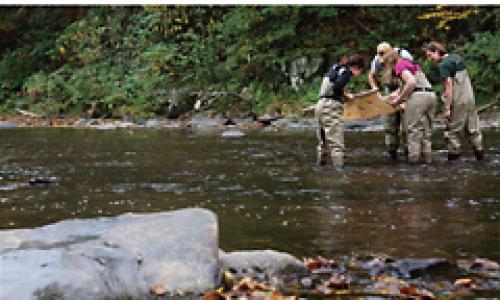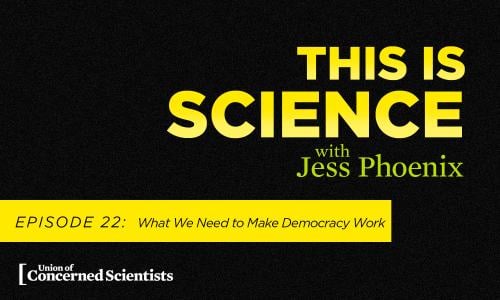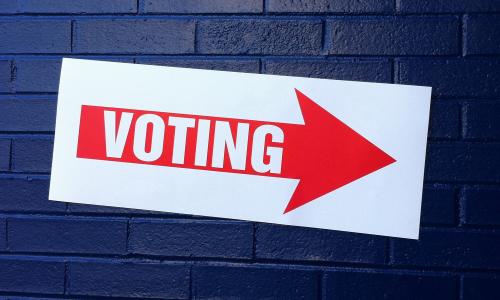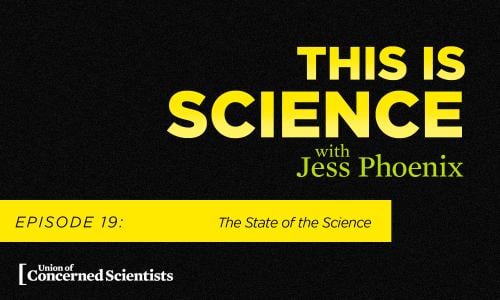A Koch-funded think tank tried to harass and discredit prominent climate scientist Michael Mann by suing for access to his private correspondence. Mann defeated the effort—but fears the resulting “chill” could deter young climate scientists.
There was the envelope stuffed with cornstarch, meant to mimic anthrax. There were the thousands of hate-filled emails, laced with warnings and threats. There were the Congressional hearings, where presenting scientific evidence—and fighting off fact-free attacks by hostile members of Congress—was a torturous uphill battle.
Climate scientist Michael Mann hasn’t had it easy since first publishing his pioneering “hockey stick” graph in the 1998. Together with co-authors Raymond S. Bradley and Malcolm Hughes, the research indicated unprecedented global warming in the last century. In doing so, the graph also painted a bright red target on the authors’ backs for those intent on undermining public understanding of climate change. While some of the attacks against Mann have been the work of rogue individuals—albeit individuals possibly spurred by the fossil fuel industry’s decades-long work manufacturing doubt against climate science—it’s remarkable how many attacks actually trace directly to involvement by the fossil fuel industry.
One of the more notable campaigns against Mann was the attempt to discredit his work by accessing his private correspondence through Freedom of Information Act requests. From 1999 to 2005, Mann worked as an Assistant Professor at the University of Virginia, a public university. In 2010, five years after Mann departed the state for a position at Penn State University, Virginia Attorney General Ken Cuccinelli issued a civil Investigative demand under the state’s Fraud Against Taxpayers Act (generally used to prosecute Medicaid fraud) to attempt to access Mann’s correspondence. An editorial in Nature scathingly opined that “Given the lack of any evidence of wrongdoing, it’s hard to see Cuccinelli’s subpoena…as anything more than an ideologically motivated inquisition that harasses and intimidates climate scientists.”
State courts ultimately considered Cuccinelli’s efforts an abuse of power, with the Virginia Supreme Court rejecting the demands. As the case was making its way through the courts, however, the American Tradition Institute (ATI, now the Energy and Environmental Legal Institute) sought the same documents—and continued the same harassment—under the Virginia Freedom of Information Act. As an analysis of ATI’s IRS 990 forms for the 2010 calendar year revealed, the group was significantly bankrolled by industry sources.
Almost 25 percent of ATI’s funding came from its sister group, American Tradition Partnership, which received funding from the fossil fuel industry. ATI also received a small contribution from the Atlas Economic Research Foundation, which is supported by significant funding from ExxonMobil, the Koch foundations, and the Pope foundation. Meanwhile, more than 75 percent of ATI’s funding came from Doug Lair and the Lair Family Foundation, a fortune that comes from Lair Petroleum, which was bought by William Koch in 1989. Additionally, Chris Horner, ATI’s director of litigation, was serving (and still serves) as a senior fellow at the Competitive Enterprise Institute (CEI), a conservative think tank that receives significant amounts of money from the fossil fuel industry and spends liberally on projects meant to undermine the science around global warming. Subsequent analysis of bankruptcy filings found that ATI and related institutions and individuals had also received significant funding from coal companies.
At first, UVA president Teresa Sullivan committed to protecting Mann’s correspondence, but then agreed to give ATI special access to the documents under a protective order. After Mann and others intervened, a court nullified the protective order. After a long legal battle—in 2012, a circuit court sided with UVA, a decision ATI appealed—in April 2014 the Virginia Supreme Court unanimously ruled that unpublished research by university scientists is exempt from the Virginia Freedom of Information Act. After the ruling, Mann told the Washington Post that “this is a victory for science, public university faculty, and academic freedom.”
Although Mann eventually won the case, he spent years tied up in court and dealing with other industry-funded attacks. Many of his colleagues have also spent significant time dealing with similar harassment and attacks due to their work on climate change. The danger of these harassing attacks is multi-fold. Attempts to silence scientists studying global warming leave both government and the public in the dark about the critical steps needed to mitigate the very real dangers of climate change. And by harassing prominent climate scientists, these powerful interests may keep new scientists from asking the most challenging policy-relevant questions—or even entering the field of climate science altogether—when they are needed now more than ever.
As Mann wrote in a December 2016 op-ed, “I fear the chill could descend. I worry especially that younger scientists might be deterred from going into climate research (or any topic where scientific findings can prove inconvenient to powerful vested interests). As someone who has weathered many attacks, I would urge these scientists to have courage. The fate of the planet hangs in the balance.”
Further Reading
- Freedom to Bully: How Laws Intended to Free Information Are Used to Harass Researchers (2015)
- Science under Attack: Legal Harassment of Climate Scientist Michael Mann
- Timeline: Legal Harassment of Climate Scientist Michael Mann
- More Misrepresentations of Climate Science in Legal Briefs Criticizing Michael Mann



